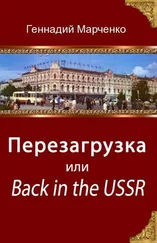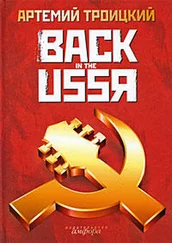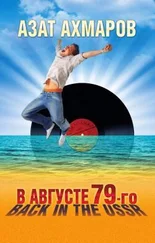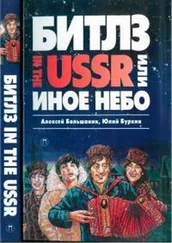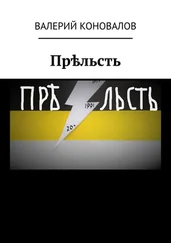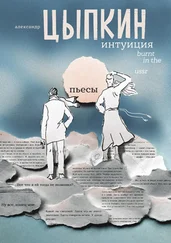“All right, I made a mistake, but you can’t use that to justify your behaviour forever. You blame me because it gives you an excuse to drink, but in truth you drink because you’re a coward. You can’t face work, or me, or even poor Natasha. If you can stop blaming me I’m willing to support you until you get paid.”
But prison has put an unbridgeable gulf between us. I feel as though I’ve crossed a boundary beyond which there can be no return to normal life. Olga will never understand what I’ve been through, and she’s mistaken if she thinks I can rebuild a life with her as though nothing has happened.
The factory tells me I can start in the new year. I fill in the time by hanging around with my alkashi friends, who listen to my camp stories with sympathy and even admiration. Their attention fuels my self-pity and I begin to enjoy my role as sufferer. The realisation of this fact does not make me proud of myself, so I submerge myself in drink.
One morning I crawl home to find the flat empty. Olga has taken almost everything that belongs to her and Natasha. I figure she’s trying to teach me a lesson and so I refuse to chase her. A week passes. I phone her work. They tell me she’s resigned. I’m shocked. They must be lying to me. She has nowhere to go.
Olga left no money so I sell the furniture, including my precious East German bookcase. I haul it downstairs at five in the morning, tie it to Natasha’s sledge and drag it to the market. Alas, while I’m taking a smoke-break the wind turns my bookcase over and its beautiful glass doors smash. With great difficulty I convert it into a bottle, which my customer helps me drink.
In the end I sell the only living thing left in the flat, Natasha’s hedgehog Yashka. The poor thing is hungry as there is no food in the house. I take it to the shop Nature , not really hoping for money. I think that at least someone might take it home for their children, but the shop assistant gives me one rouble and seventeen kopecks for Yashka. She knows the price of a bottle.
Finally I go to my wife’s sister Ludmila, who tells me that Olga and Natasha are fine. They’re living in a small mining town, they’ve found a flat and Natasha is going to a modern kindergarten. Ludmila has promised not to disclose their whereabouts. That is the only information I can glean, but I feel calmer. Any decision I take will have to be made with a sober head and so I go home to sleep.
For two days I do not leave the house. Although there is a bottle of vodka in the kitchen I leave it untouched. As each hour passes I feel worse. I can’t sleep for a minute. The radio bothers me so I switch it off. I lie down and try to read. A snow-storm howls outside; the wind rattles the window. On the third night I hear breaking glass. ‘Bad luck,’ I think. Someone must have forgotten to shut their ventilation window and it’s blown open and shattered.
The doorbell rings. I go to answer it. On the threshold stands my neighbour Voronin in his underpants. He is holding a gun, a 16 calibre rifle.
“Was it you who broke my window?” he growls.
“What? Are you crazy?”
“Show me your balcony,” he demands, and pushes past me into the living-room.
Our balcony is next to his bedroom window. He tries the glass door but it won’t open because of the snow piled against it.
“I thought you’d gone out onto your balcony and broken my window with a mop.”
“What would I want to do that for?”
“Who the hell knows what goes on in your mind, you’ve been pissed for two months,” he snaps, and goes home.
If I had stepped onto the balcony there would have been footprints in the snow, and there are none. Something isn’t right. Why would I break his window? I scarcely know Voronin. He is the head doctor in the clinic where Olga works. We exchange greetings on the stairs and his wife sometimes borrows matches. There’s no quarrel between us. After thinking hard about the incident I go to fetch some six-inch nails and a hammer. I nail the balcony door shut. Let them say what they like now! But the business still worries me. And a gun!
The more I think about it the more convinced I am that some sort of dirty trick is being played on me. Voronin knows that I have just come out of camp. He probably knows that Olga has left. He knows that I drink. Perhaps he wants to provoke me into some sort of criminal action. But why? What have I ever done to him? I can find no answer. The simplest solution would be to have a drink and forget it all but I decide not to succumb.
The next day I feel just as bad. It’s my third day without drinking. Nor have I eaten anything. I go into the kitchen and listen to the noises in the building around me. Voices come from the landing. I stand by the front door with my ear to the crack but all I can hear is babble, punctuated by whistles and shrieks.
I lie down to read again, but I can’t concentrate on my book. The lines dance before my eyes without making sense. I put the book down and lie waiting for nightfall, hoping for sleep to bring relief.
The acrid stench of burning cotton wool annoys me. Earlier in the day I threw my quilt into the stove to warm the room, and now I want to open a window but do not dare after the business with Voronin. I listen to noises outside. The wind has abated and the street roars with cement-mixers driving to the building site down the road.
I hear my name from the other side of the wall. Taking my metal mug, I place it against the door to listen, as I learned in prison. Bloody hell, they are discussing how to get me sent to jail!
“It didn’t work last night,” says Voronin.
“You must do something to get rid of that parasite.” I recognise the voice of a woman who lives on the floor above me. “How can I bring up my children decently with him around?”
“His poor wife,” says another, “no wonder she left him. Did you see the low-life he brought in last week?”
‘Hypocrites!’ I think, ‘You bitches aren’t averse to the bottle yourselves and when you’re drinking the whole block has to know about it.’
I consider jumping out on them but decide this might also be some sort of provocation. If they can accuse me of starting a fight I’ll go back to camp for sure.
Judging by the noise everyone in our block is assembled on the landing. Then I hear Voronin address his eldest son: “Dimka, go down into the street and throw stones at the windows. Then there’ll be material evidence to have Petrov arrested.”
I rejoice. They do not know that I’ve nailed up the balcony door. But they are many and I am one. I know the disposition of the police well enough. They don’t need proof. Once they have their denunciations everything will proceed as smoothly as a knife through butter.
I turn off the light in order to see what’s happening in the street. Dimka walks about below, his eyes on the ground.
Hah, he won’t find any stones. The snow’s too deep.
Dimka begins to gather compressed lumps of snow thrown up by the cement mixers. He throws them at the windows of the block. Fortunately the lumps disintegrate before they reach the third floor.
I shake with fear and outrage. But I’m not going to give up without a fight, so I burst out onto the landing and press the doorbell of my next-door neighbour. I need a witness to prove my innocence. My neighbour, a Tatar called Piotr Tukhvatullin, opens the door, looks into my eyes and silently ushers me into the kitchen where he pours me a glass of after-shave.
“Drink!” he says, bringing out a chess board and playing with me for the rest of the night. Sunday morning dawns and Piotr takes me to the market with him. He spends the whole day buying animal skins from peasants, keeping me beside him and giving me a top-up whenever I start to get the jitters. I feel better, but back in the flat that evening the terror returns. In order not to hear the Voronins’ conversation I go into the kitchen. Apathy overwhelms me. Let them do to me what they will. Voices start to come through the wall adjoining the Tukhvatullins flat. Piotr’s wife is cursing him for getting mixed up with me. He defends himself rather half-heartedly.
Читать дальше
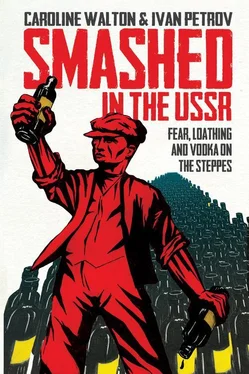
![Геннадий Марченко - Перезагрузка или Back in the Ussr. Книга 1. [СИ]](/books/53319/gennadij-marchenko-perezagruzka-ili-back-in-the-uss-thumb.webp)
